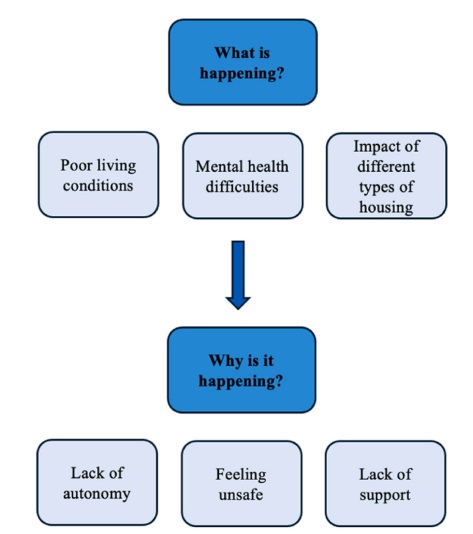Living conditions can impact the mental health of asylum seekers, and certain types of housing may carry higher risks than others. A systematic literature review using narrative synthesis analyzed 21 studies on the housing issue related to asylum seekers’ mental health (Spira J, Katsampa D, Wright H, Komolafe K. The relationship between housing and asylum seekers’ mental health: A systematic review. Soc Sci Med 2025: 368: 117814).
It found that poor living conditions harm mental health, with collective housing and detention being particularly detrimental. Detention had the highest levels of self-harm. Conversely, private and community housing were better alternatives that could improve mental health.
The review’s authors also highlighted themes such as lack of autonomy, perceived safety concerns, and insufficient support as factors contributing to the effect of housing on the mental health of asylum seekers.
“Policy implications include the need to safely house all asylum seekers, particularly the most vulnerable asylum seekers”, they wrote, and also that “Clinical interventions should go beyond psychiatric treatment and target psychosocial wellbeing, addressing issues of social isolation and supporting asylum seekers to manage psychosocial difficulties, including housing problems”.
Picture from Spira J, Katsampa D, Wright H, Komolafe K. The relationship between housing and asylum seekers’ mental health: A systematic review. Soc Sci Med 2025: 368: 117814 (Fig. 2. Themes from systematic literature review).

